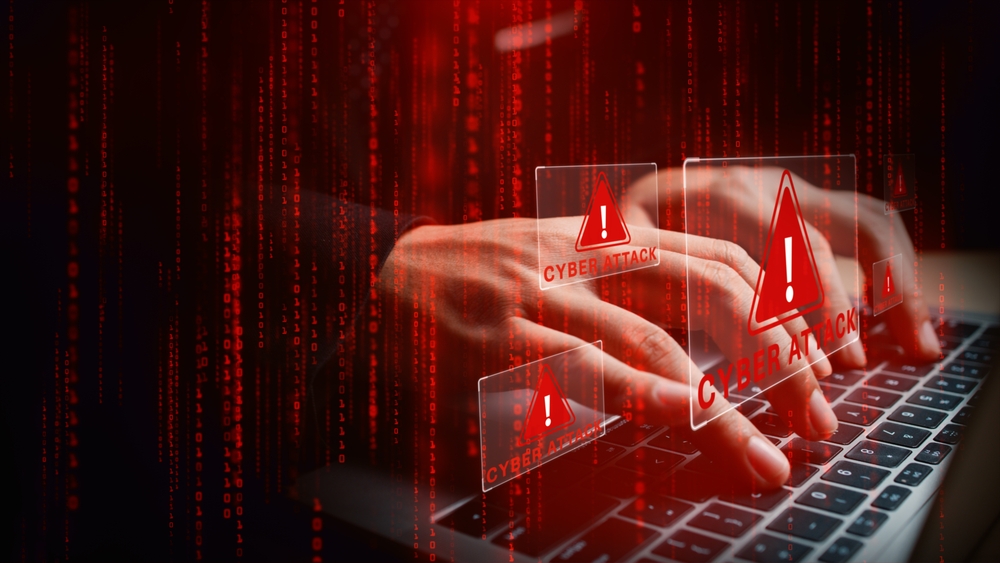By Stephen DeAngelis
Many companies, organizations, and educational institutions have adopted “Sustainable September” as a promotional or educational theme. Unfortunately, in some parts of the world, sustainability efforts are being attacked as part of a “woke” corporate agenda. This creates an uncomfortable situation for company executives who view sustainability activities as part of a long-term “survive-and-thrive” strategy. A few short years ago, analysts from Spend Matters wrote, “An increasing number of organizations are being driven by customers and regulators to gather supply chain intelligence surrounding suppliers’ [Environmental Social Governance (ESG)] qualifications (e.g., carbon emissions, labor conditions, sustainability, diversity).”[1] Customer concerns, however, take a back seat when they differ from government priorities. In response to changing political conditions, some companies no longer highlight ESG activities, including sustainability.
At the World Economic Forum in Davos in early 2024, the term ESG began a quiet rebranding as companies and leaders, responding to political backlash and criticism, started replacing it with less controversial terms like “responsible business” or “climate risk integration.” Nevertheless, journalist Clint Rainey notes, “Despite what critics may claim, environmental, social, and governance priorities are far from dead.”[2] Rainey observes, “Those letters [i.e., ESG] stand for everything, and therefore nothing, which makes it nearly impossible to establish fair, universal metrics.” The ongoing corporate strategic shift aims to avoid the baggage associated with ESG by focusing on more precise language and achievable goals. As a result, sustainability efforts are likely to find a new home as part of activities aimed at making supply chains more resilient.
The Importance of Resilience
A few years ago, Martin Reeves, Chair of Boston Consulting Group’s (BCG) Henderson Institute, along with BCG alumni Lars Fæste, and Tom Deegan, explained that pursuing resilience is a great strategy in both good times and bad. They wrote, “Future-oriented leaders recognize the long-term value of resilience and keep it on the change agenda in fair weather times. ... For future-oriented leaders, keeping resilience on the transformation agenda pays off. Transformations that accelerate growth, reduce debt, and increase operational flexibility in more stable periods improve resilience by 7 pp over those that do not.”[3] Whatever you want to call it, sustainability remains an important part of corporate transformation efforts.
The staff at SupplyChainBrain reports, “Nearly 70% of executives say that using technology to make their supply chains more agile and sustainable is their top priority in 2025. According to a survey of 1,000 supply chain executives from tech consultancy Capgemini, 68% have established clear objectives for their supply chains this year, up from just 35% in 2022. Another 72% said that they've made significant progress on transforming their supply chains, compared to 54% three years ago. … 71% of executives say that the business value of sustainability initiatives outweighs the associated costs. Another 76% have a comprehensive sustainability strategy in place now, while 82% have KPIs for tracking and actively monitoring sustainability performance across their supply chains.”[4]
Today’s business environment is extremely complex and constantly changing. Keeping up with this complexity has meant, for some companies, eliminating activities once associated with ESG. According to Pranav Padgaonkar, Vice President at GEP, dropping ESG efforts is not necessary, or even advisable. He explains, “In the new one-disruption-per-quarter world, organizations initially pivoted to maintaining supply continuity at any cost. Now, with high inflation and concerns over a recession, organizations need to return to cost minimization without compromising on supply assurance. Add to this mix the increasing pressure of meeting aggressive environmental, social, and governance (ESG) targets, and taken together the challenges may feel difficult to balance. How can organizations build supply chain resilience amid these seemingly diverse goals? By recognizing that while these may be competing goals, they are not conflicting ones.”[5] He adds, “Going green is still often perceived to be cost-prohibitive. But aggressive environmental goals need not conflict with minimizing costs and building resilience. … The paths to build resilience and achieve ESG goals overlap significantly.”
Making It All Work
According to Padgaonkar, “Supply chain resilience, cost management, and sustainability are all crucial goals that may seem conflicting on the surface. But meeting these goals is necessary for survival in a competitive market, and an organization that does not do so will be left behind quickly.” BCG analysts Alexis Colombo, Hady Farag, Gerry Hansell, and Jesper Nielsen assert, “While not every sustainability-related investment has the potential to create value, taking full advantage of the ones that do is essential.”[6] They explain, “Your sustainability strategy needs to be linked, at least in part, to your value creation strategy. … The types of sustainability initiatives most likely to deliver real returns [are] the ones that either accelerate the growth rate of free cash flow by boosting revenue or lowering costs — or extend its duration by reducing risks.”
Stephan Liozu, chief value officer at Zilliant, agrees with the BCG analysts that value can be added through sustainability efforts. He writes, “Sustainability is not dead. At least, not yet. I must admit that the industrial sector's enthusiasm for sustainability and ESG has taken a backseat in recent times. First, the political landscape is less favorable now for sustainability and ESG. Second, the hype surrounding AI has captivated the attention of business leaders and investors alike, overshadowing the importance of sustainability initiatives. Finally, the loosening of regulations in many countries and the current economic environment have contributed to a lack of excitement around sustainability. Some could conclude that it is the end of the sustainability movement. I take a different view. I believe this trend presents a unique opportunity for sustainability leaders to establish a greater level of differentiation and drive long-term value. The noise and the hype are gone. Now is the time to use sustainability as a strong competitive advantage.”[7] How can that be accomplished?
Enterra Solutions® has developed a suite of solutions that are built upon Enterra’s Autonomous Decision Science ™ (ADS®) and Generative AI technology platform. The Enterra Dynamic Enterprise Resiliency System™ (EDERS™) is a groundbreaking system designed to enable enterprises to convert macroeconomic and geopolitical chaos into powerful competitive advantage. EDERS enables organizations to autonomously analyze data, predict outcomes, and execute optimized decisions with high accuracy across complex business operations. A defining feature of the system is its architecture which is comprised of a set of interconnected business applications that leverage a common analysis, optimization, and decision-making/learning platform. These business applications include:
• Enterra Consumer Insights Intelligence System™
• Enterra Revenue Growth Intelligence System™
• Enterra Demand and Supply Intelligence System™
• Enterra Global Insights and Decision Superiority System™ (Enterra Business WarGaming™)
Enterra’s system can Sense, Think, Act, and Learn® to help predict the future and optimize decision-making, including decisions about how to create value from sustainability efforts.
Concluding Thoughts
Companies that believe sustainability efforts remain important should be buoyed by the fact that many economic sectors are still pursuing them. For example, in the CPG sector, journalist Augustus Bambridge-Sutton reports, “Despite some signals that sustainability is going out of fashion, even among consumers themselves, food companies are more committed than ever to their sustainability goals.”[8]
In the manufacturing sector, Liozu believes only short-sighted industries will abandon sustainability efforts. He explains, “The reduced excitement around sustainability presents a unique opportunity for leaders to establish a greater level of differentiation and drive long-term value. By prioritizing customer commitment, innovation, high-impact initiatives, and strategic acquisitions, industrial companies can position themselves for success in a rapidly changing world. By staying the course and investing in genuine sustainability initiatives, companies can reduce their environmental footprint, improve their social impact and drive business value. And they can leverage AI to do that well and fast.”
Even though the term ESG may be going out of fashion, supply chain journalist Robert J. Bowman concludes that such efforts remain very relevant. He explains, “Don’t let [the current political climate] lure you into thinking that ESG is no longer a concern of international business. On the contrary, companies are pressing forward with efforts to reduce the impact of their global supply chains on our air, water, land and climate. Similarly, they’re demonstrating increased concern — whether out of the goodness of their hearts, or growing pressure from consumers; you decide — about human rights in factories, farms, mines and warehouses.”[9] That’s good news.
Footnotes
[1] Spend Matters Brand Studio, “The supply chain crisis (Part 3): Building a resilient future,” Spend Matters, 13 July 2022.
[2] Clint Rainey, “At Davos, ESG begins a quiet rebranding—here’s what that looks like,” Fast Company, 17 January 2024.
[3] Martin Reeves, Lars Fæste, and Tom Deegan, “Transform for Resilience: An Imperative for Good Times Too,” Boston Consulting Group, 14 July 2021.
[4] Staff, “Report: Supply Chain Execs Prioritize Sustainable Transformation in 2025,” SupplyChainBrain, 3 September 2025.
[5] Pranav Padgaonkar, “How to Build Supply Chain Resilience Without Sacrificing ESG Goals or Inflating Costs,” Harvard Business Review, 29 March 2023.
[6] Alexis Colombo, Hady Farag, Gerry Hansell, and Jesper Nielsen, “Six Ways to Link Sustainability and Value Creation,” Boston Consulting Group, 28 January 2025.
[7] Stephan Liozu, “Sustainability's Second Act: Some See Opportunity as Interest Wanes,” Industry Week, 7 May 2025.
[8] Augustus Bambridge-Sutton, “Corporates still care about sustainability,” Food Navigator Europe, 13 May 2025.
[9] Robert J. Bowman, “Is ESG Still Relevant?” SupplyChainBrain, 5 may 2025.








